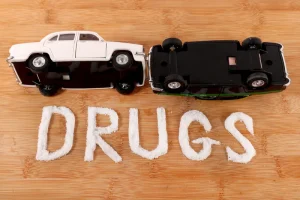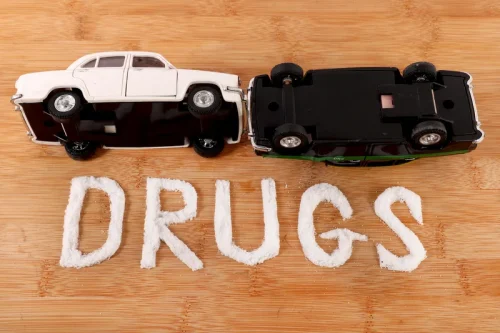
This stigma creates shame, guilt and fear in individuals who are addicted to alcohol. As the loved one of an addict in denial, you may be wondering how to confront an addict in denial and speed up the process of recovery. The reality is that recovery is impossible until the addict decides on their own that they want to change and get sober.
Signs of Alcoholism Denial
If you feel that you sometimes drink too much alcohol, or your drinking is causing problems, or if your family is concerned about your drinking, talk with your health care provider. Other ways to get help include talking with a mental health professional or seeking help from a support group such as Alcoholics Anonymous or a similar type of self-help group. Denial serves as a defense mechanism to protect the individual from the painful reality of their alcoholism.

Family Dynamics
Admitting a problem means facing difficult truths and doing hard work to overcome the issue, which is challenging. Sufferers of alcohol use disorder commonly tell themselves they can quit any time, or that their drinking is under control and not that serious. Any level of denial can also make it difficult for a person to seek or become willing to receive help for their substance use disorder. This guide will examine the concept of denial, explore some common signs and symptoms of denial to look out for, and learn how to help someone who is in denial about their addiction.
How Does Alcoholic Denial Happen?

You may even find that if you continue to press the issue, your loved one gets angry. You may be called judgmental or nosy, or told to mind your own business. Anger and defensiveness suggest that your loved one has some awareness of a problem but is afraid to face it. In this post, we’ll discuss how and why denial happens, its role in addiction, common signs, and how to help someone who may be in denial.
In a 2015 study, almost 29% of participants didn’t seek treatment due to stigma or shame. People who are high functioning with a drinking problem “seem to have everything together,” says Matt Glowiak, PhD, LCPC, a certified advanced alcohol and drug counselor. They’re able to successfully manage tasks around their work, school, family, and finances, he says. You can also visit the NIAAA Rethinking Drinking website or read the NIAAA treatment guide to learn more about alcohol use disorder and to find help for your loved one.
- Understanding denial is a first step toward helping your loved one with alcohol use disorder.
- Let them know that there are ways they can overcome their addiction and live a fulfilling life once again.
- However, there is limited information about which characteristics of drinkers and which drinking problems relate most closely to that denial.
- To maintain a positive view of themselves, people revise their beliefs in the face of new evidence of good news but ignore bad news.
- However, remaining in a state of denial prevents many people from understanding the toll that their harmful behavior takes on themselves and those they love.
How to Recognize and Overcome Denial in Addiction

Social media is not yet defined as a diagnosis and its effects are not fully known, but research has shown a clear association between social media use and other conditions including increased depression. Behavioral addictions differ because they do not produce the same physical signs as drug addiction. Cookie PolicyWe do not offer specific health advice, nor are we a remote clinical advice service (RCA). We can, with your consent, pass your details to our partners that can offer this.

If you’re seeking help for a teen, you can check out resources from the Family Resource Center or the Partnership to End Addiction. No matter how functional an alcoholic is, the nature of the disease will eventually start to wear them down. Enabling also creates an environment that fosters Alcoholism and Denial co-dependency and negatively impacts appropriate support systems. Acknowledge their struggles but gently point out how alcohol is exacerbating their problems. False agreements give the appearance that they are willing to address the issue and seek help. But deep down inside, there’s resistance preventing them from taking meaningful action toward recovery.
- Once you have received a formal diagnosis of alcohol addiction, you will need to begin treatment as soon as possible.
- This guide will examine the concept of denial, explore some common signs and symptoms of denial to look out for, and learn how to help someone who is in denial about their addiction.
- One striking finding involved the 4% of AUD probands overall who admitted to tolerance in the prior five years compared to 57% who endorsed tolerance in AUD offspring.
- Some days will be more challenging than others, but every day is a recovery day.
It can be seeking professional help, joining support groups like Al-Anon or Alcoholics Anonymous (AA), talking openly about concerns, or attending educational programs for those grappling with substance abuse disorders. People with an alcohol addiction may lie to mask shame or to avoid ridicule from their peers. A 2007 study by the National Center on Addiction and Substance Abuse showed that 37 percent of college students avoided seeking substance abuse treatment for fear of stigma. Within the same interview session 67% of SDPS probands with current AUDs and 82% of current AUD offspring endorsed enough alcohol problems to meet DSM-IV AUD criteria but denied having a general alcohol problem.
Rationalization involves coming up with justifications or explanations to make their drinking seem reasonable or acceptable. They might say things like, “I only drink to relieve stress” or “Everyone drinks; it’s a normal way to unwind.” Recognizing these patterns of denial is key to breaking down the walls that stop people from getting help and starting their journey to recovery. Alcohol use disorder can include periods of being drunk (alcohol intoxication) and symptoms of withdrawal.

